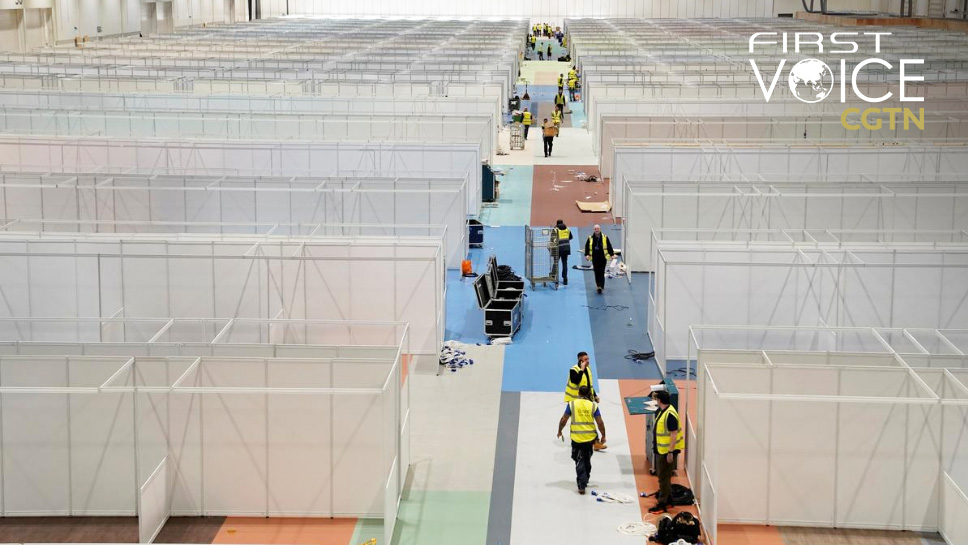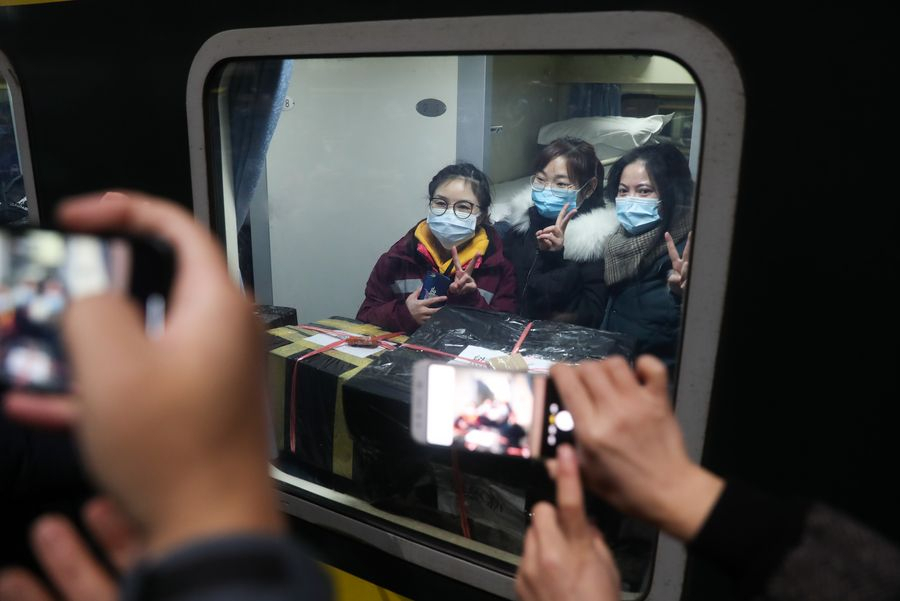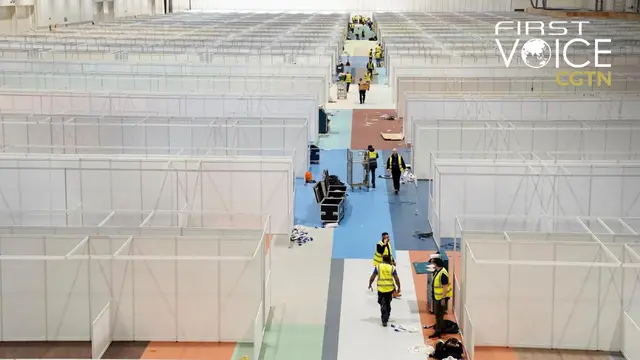
Editor's note : CGTN's First Voice provides instant commentary on breaking stories. The daily column clarifies emerging issues and better defines the news agenda, offering a Chinese perspective on the latest global events.
A month ago, coroanavirus cases around the world were mainly concentrated in China, but today Europe and America have become the new epicenters of this global pandemic with the U.S., Italy and Spain having all surpassed China in terms of the number of infections.
This development has transpired despite the West having witnessed China's earlier herculean effort to bring the unprecedented epidemic under control. Some have been asking why so many western countries did not pay heed to China's lesson and took early actions?
Of course, China is different from western countries in many senses and on various levels. But be it Chinese people or people in the West, they are all vulnerable to the deadly new coronavirus. When China locked down the whole city of Wuhan on January 23, and later expanded the blockade of traffic to the wider Hubei Province, it should have sent a stark warning to the western world about the gravity of the situation.
However, despite seeing what unfolded in China, western countries'responses have been marred by unimaginable sluggishness. Why is that? Chinese people still recall when the lockdown measure was first announced in the country and people started to quarantine themselves at home, there was an outcry or, to better put it, hysteria within some Western people about the human rights implications of these measures.
For example, a New York Times article published on January 22 quoted a western scholar as saying the shutdown "would almost certainly lead to human rights violations and would be patently unconstitutional in the United States."
On February 2, the Guardian also put out an article authored by Frances Eve, entitled "China's reaction to the coronavirus outbreak violates human rights." The author made the pointed comment that China's locking of millions of people into cities "with almost no advance notice should not be considered anything other than terrifying."

Female health workers on a 50-member medical team pose for photos before leaving for Wuhan from east China's Shanghai, January 27, 2020. /Xinhua
It's important not to make blanket criticisms about westerners but unfortunately, such a mentality exemplifies how an overwhelming population in the West views China. Their perception of China was infused with marked bias, as they always interpret the Chinese government's actions as being repressive, authoritarian and characterized with blatant disregard for human rights. This deep-seated bias has prevented them from making an effort to understand the severity of the situation on the ground. Instead of paying attention to why China went as far as taking such drastic actions, they treat everything China does with doubt, suspicion and contempt, and therefore has discredited China's efforts to contain the spread of the virus during the outbreak.
As Ian Johnson, a writer on New York Times put it, "When quarantine shelters were set up to host infected people…, the effort was portrayed (in the West) as dystopian or, at best, chaotic" and even the awe over China's ability to build a hospital in ten days was tinged with a sense that "something nefarious must be at work."
John Ross, former director of economic and business policy for the mayor of London, also put many westerners'rigid application of human rights and disparaging of China into serious doubt. In an opinion article published on Russia Today, he explained why China had to take the actions it has taken - if Wuhan was not locked down, the virus would have spread uncontrollably across China. And as people like Frances Eve are relentlessly attacking China for violating human rights by locking down cities, Ross was able to tell that in reality, people in Wuhan understood this national strategy.
Most importantly, China's measures have worked. Despite being the early epicenter of this horrific global pandemic and having over 95 percent of the global cases in the early stage, domestic transmission of COVID-19 has almost disappeared as of today. In contrast, the dire situation has been unfolding on a daily basis in the West. In the U.S., President Trump had to announce on Sunday to extend social distancing guidelines for another month in face of the continuous surge of new infections across the country.
There is no denying that COVID-19 poses an unprecedented threat to mankind and it takes time to understand the disease, but the impact on many western countries could have been mitigated if the mainstream point of view was not so contemptuous or ignorant of what was happening in China or the measures it has taken. Instead of taking note of what they could learn from China's experiences, the West is fixated on why China is not like them and denigrate China by their own political and ideological standards.
The West does not have to copy everything China does, but they could have seen China more objectively, instead of viewing it through an ideological lens at all times. It could have learned from its experience and worked more closely with China - all of these would have and will still help them better cope with the situations in their own countries.
Script writer: Xu Sicong
(If you want to contribute and have specific expertise, please contact us at [email protected].)
 简体中文
简体中文

